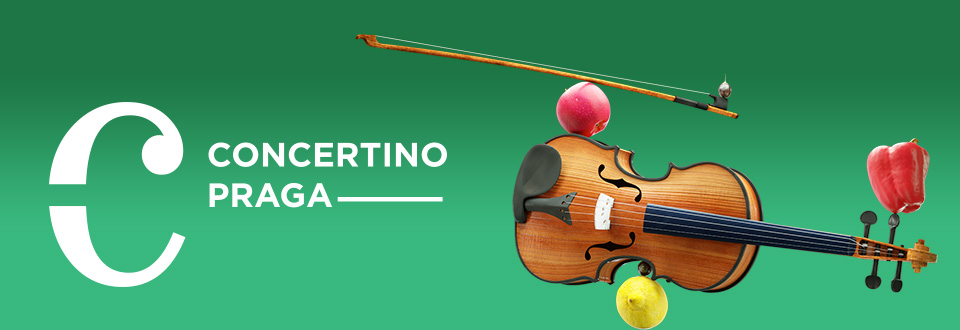Lukáš Klánský is one of the most promising czech young pianists. As a winner of numerous competitions he became sought-after both soloist and chambre music player. He is a member of sucesfull Lobkowicz Trio, the winner of Johannes Brahms Competition in Poertschach 2014. He won the second prize on Hans von Bullow International Competition 2018 at category conducting from piano.
Lukáš performs with leading Czech orchestras (Chamber Symphony Orchestra Pardubice, Hradec Králové Symphony Orchestra, Bohuslav Martinů Philharmonic, Czech National Symphony Orchestra, Barocco sempre giovane) as well as under baton of conductors as Libor Pešek, Andrea Sebastian Weiser, Gundi Emilsson or Istvan Denes. Lukáš Klánský appears on festivals as the Prague Spring, Feasts of Music with Václav Hudeček, Talich’s Beroun, Dvořák´s Prague, Festival Laggo Maggiore, Mendelssohn Musikwoche Wengen, Chopin Marathon Darmstadt, Nafplion festival, Il Timbro Ivrea, Kammermusik um Halb acht Basel etc.
He was born on March 22nd 1989 in Prague. He is a laureate of many national as well as international competitions, e.g. EPTA 2002, Agropolli 2003, Karl Drechsel fordepreise 2007, Beethoven‘s Hradec 2007, International Rotary Piano Competition 2012 and a finalist of Darmstadt International Chopin Competition 2013. At the age of fifteen he made his debut in Dvorak´s Hall in Prague with the Prague Chamber Orchestra playing Mozart’s Concerto F Major.
Between 2004 – 2010 he studied at the Prague Conservatoire with prof. Eva Boguniová, graduated with Chopin’s Piano Concerto in f- minor with the Prague Conservatoire Symphony Orchestra. He finished his studies at Academy of Performing Arts, where he studied with his father, prof. Ivan Klánský. His musical development has been influenced not only by his tutors but also by Martin Kasík as well as world-famous Garick Ohlsson, whose Prague masterclass Lukáš Klánský attended.
At his numerous concert performances he had the chance to introduce himself to the audiences in many countries. Beside the Czech Republic it was for instance Slovakia, Hungary, Germany, Austria, France, Italy, Belgium, Netherlands, Croatia, Slovenia, Greece, Poland, Turkey and South Africa. His recordings are available at Praga Digitals, Radioservis, Gramola or Naxos.
Lukáš Klánský is also conducter, he conducted La Nozze di Figaro in Prague last year and also gives concerts conducting Mozart and Beethoven Concertos from piano. He studies conducting with prof Tomas Koutnik and prof Leos Svarovsky.
How was your first encounter with the Concertino Praga competition?
As a member of the trio, I participated successfully in this beautiful competition and the South Bohemian tour was a great contribution to my artistic development. I often remember the encounters with the musicians from other countries.
What type of music do you personally like the most?
I am very close to the classic-romantic synthesis, so I have to mention Brahms and Dvořák. But my "TOP" composer are also Bach, Mozart, Beethoven, Mendelssohn, Chopin ...
How do you view artistic competitions and the objectivity of the judging of the performances?
Artistic competitions can never be perfectly objective, music cannot be measured. But I have the experience that for the majority of performances, the judges' ratings vary only slightly, so it can be said that more and more different experts agree on the quality of that and that player.
What do you think about the anonymous method of judging the recordings in comparison with the judging of the live performances?
The primary purpose is clear - to focus the jury's attention only on the sound. But it is also interesting to have a competitor – some players need a full auditorium and a sense of "here and now", some of them like the recording studio, the absence of the audience and the opportunity to have another try ... The top player must win in both cases; for those who prefer to work in the studio, Concertino Praga is a unique opportunity to compete in their more preferable way.
What do you feel is the greatest benefit of music competitions for young musicians?
In addition to being visible in the case of success, it is also a test of your own nerves and motivation to get the work in the best possible form.

